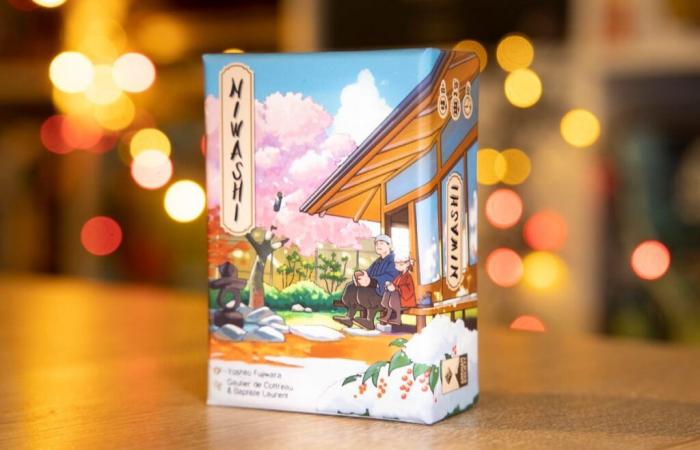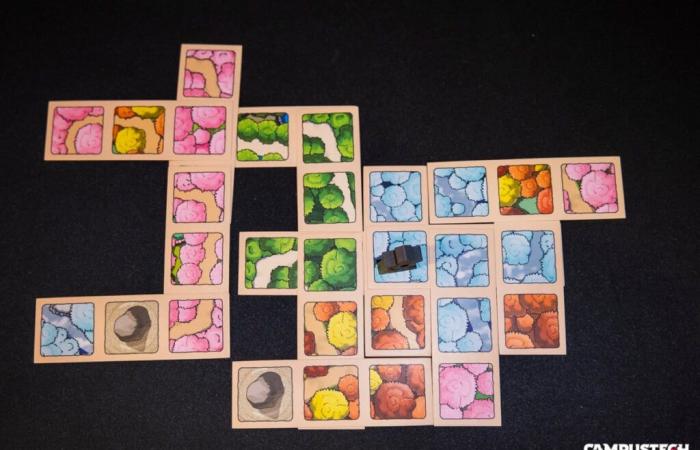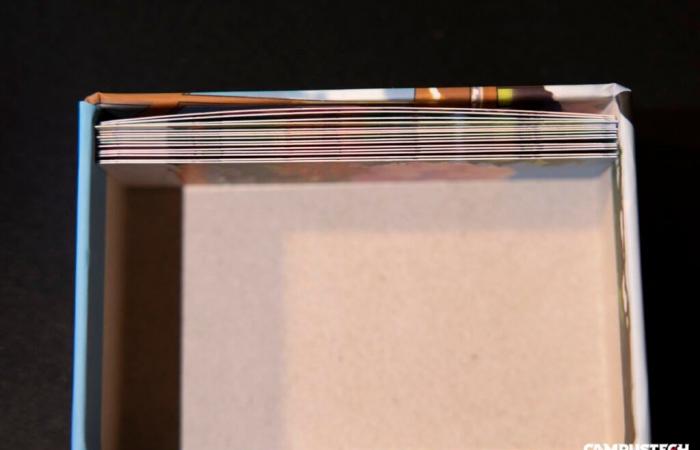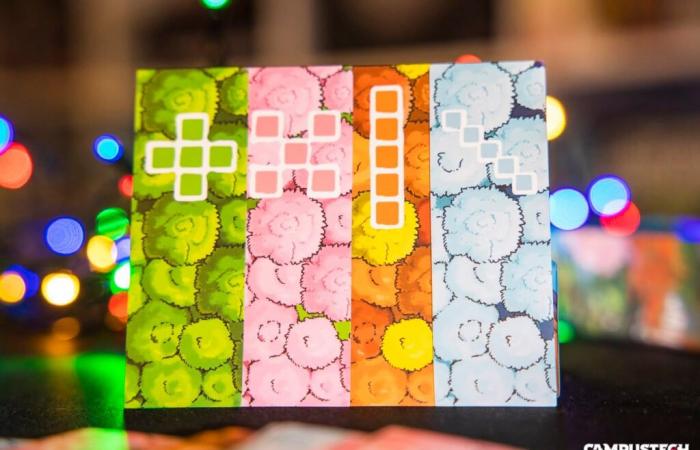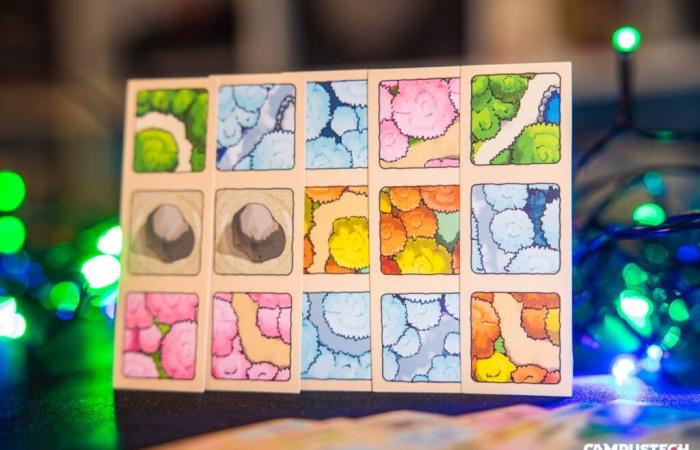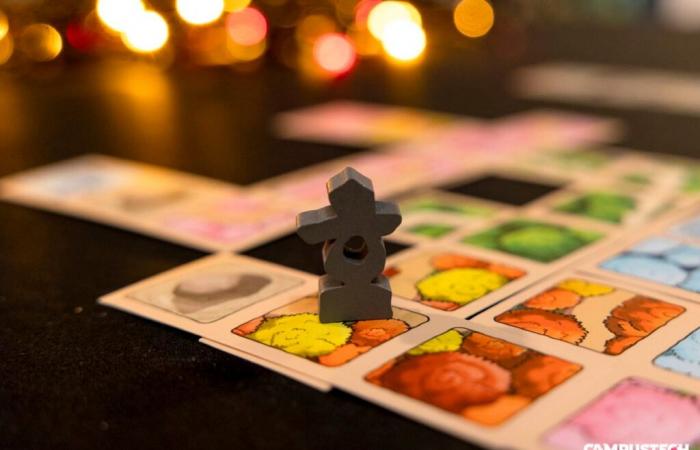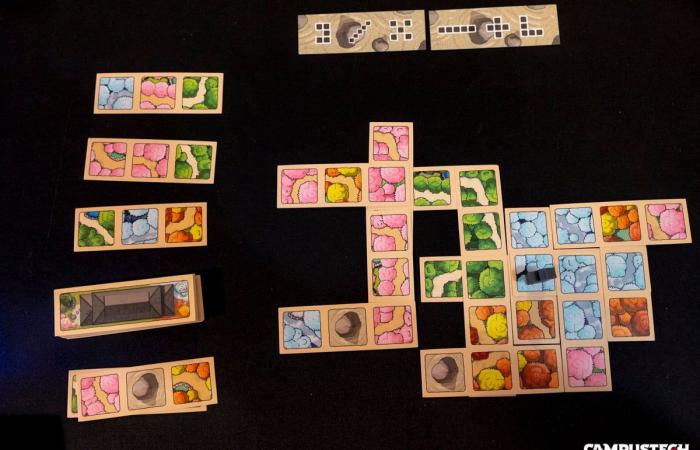Take on the role of a gardener with Niwashi, a little two-player cooperative game that will allow you to set up a zen garden in the utmost peace and quiet. For what ? Because the game is silent, and you will have to make your partner guess where and what to play…
Niwashi
Zen zoom zoom on Niwashi with Le Décompte, your dedicated online store! Order now and become a quiet, yet competent gardener!
Buy on Le Décompte
Elegance and sobriety
Niwashi comes in a very small box, sold for around €11. Inside, full-length cards offer you:
- shape and color objectives
- gardens made up of 3 boxes
- a lantern
- a shape reminder card
The sobriety and minimalism of the packaging and game materials fit perfectly with the theme of Niwashi. We are faced with a beautiful visual object. Using Yoshito Fujiwara is obviously a good idea, I would have liked them to squeeze out a little more than this magnificent cover.
Small downside for color blind people: no symbol that differentiates the colors. Another very small downside, I find that the final painting does not really look like a Japanese garden, the tiles are all very similar. I imagine that it was readability that was chosen, and from that side it works very well. Regarding the choice of paper for the tiles, I also found it a bit sticky, not practical for mixing or setting up the game.
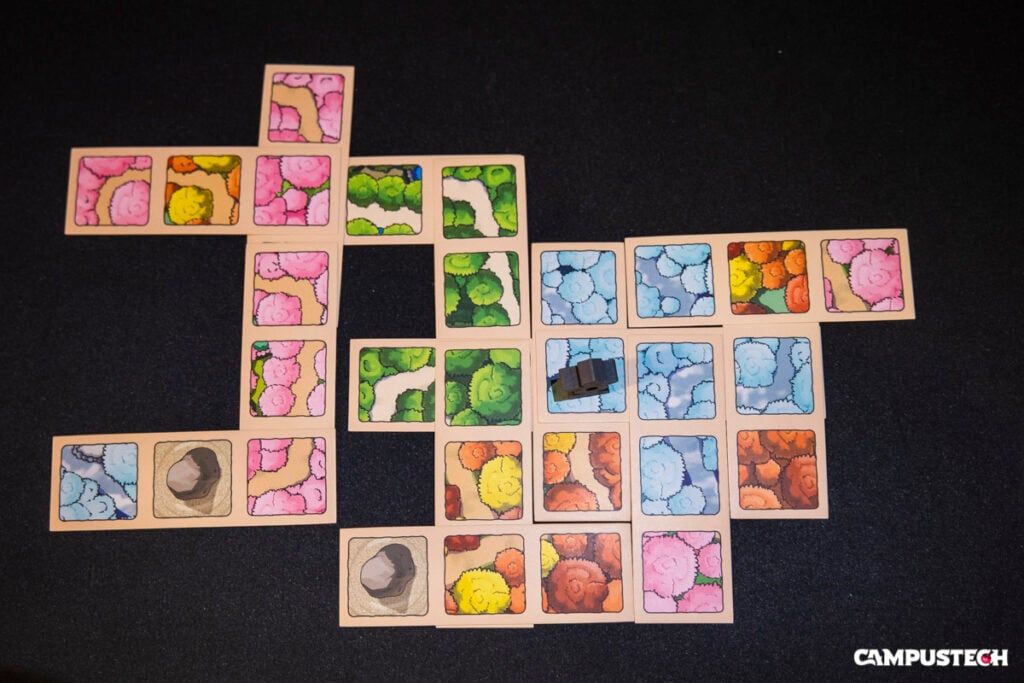

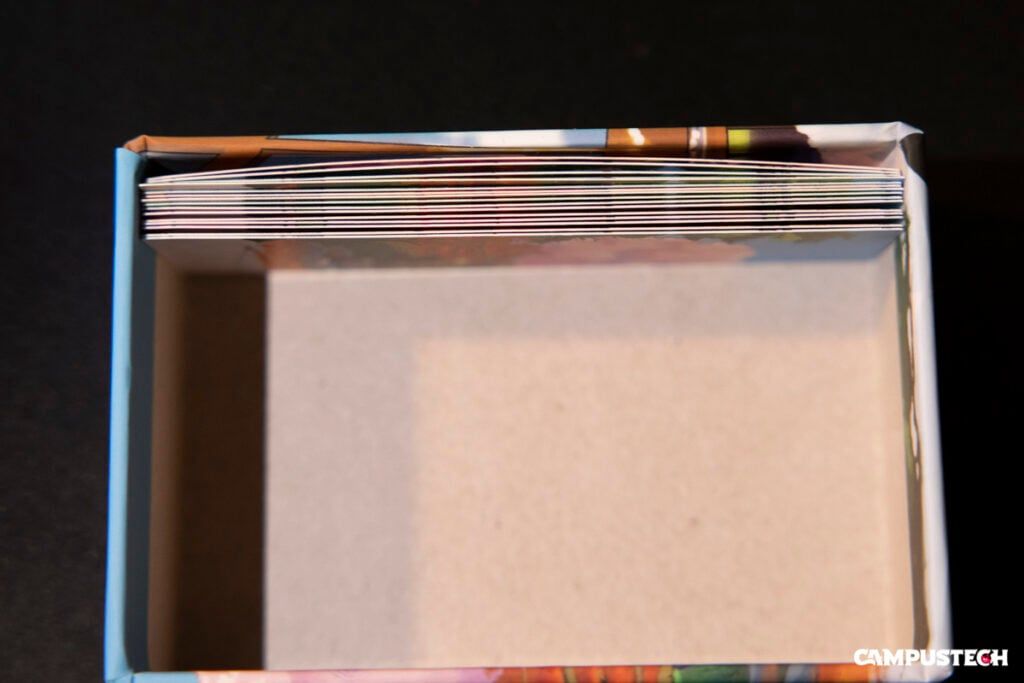

I don’t have enough perspective to know if the game will hold up over time in terms of solidity, but it’s true that I would have preferred to have canvas cards and rounded edges. Certainly the game would perhaps have been released at 15€ instead of 11: to choose is to give up.
Too bad for all these little flaws which negatively impact the editorial quality of Niwashi. These flaws do not mean that the game is poorly edited, but rather that it could have achieved excellence without it! Overall the game has rather successful visual sensations.


Nuanced gameplay
In Niwashi, you create a Zen garden, trying to meet objectives: shape and color. You have garden tiles in your hand, made up of three squares of different colors. You also have two objective tiles out of the 10 in your personal draw pile.
In your turn you will:
- Reveal completed objective(s)
- Play a garden tile or move the lantern
- Complete your hand
Playing a tile from your hand means adding a garden tile by superimposing it by at least one square, but not more than two, on an already placed tile. You will try to create colored shapes, which correspond to the objectives in hand…
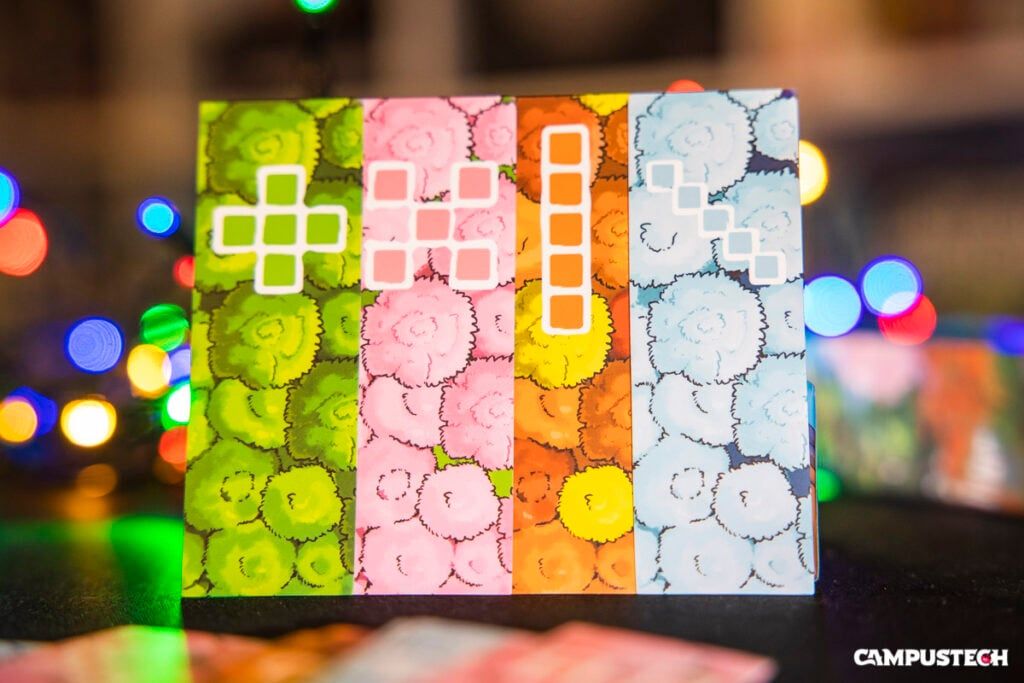

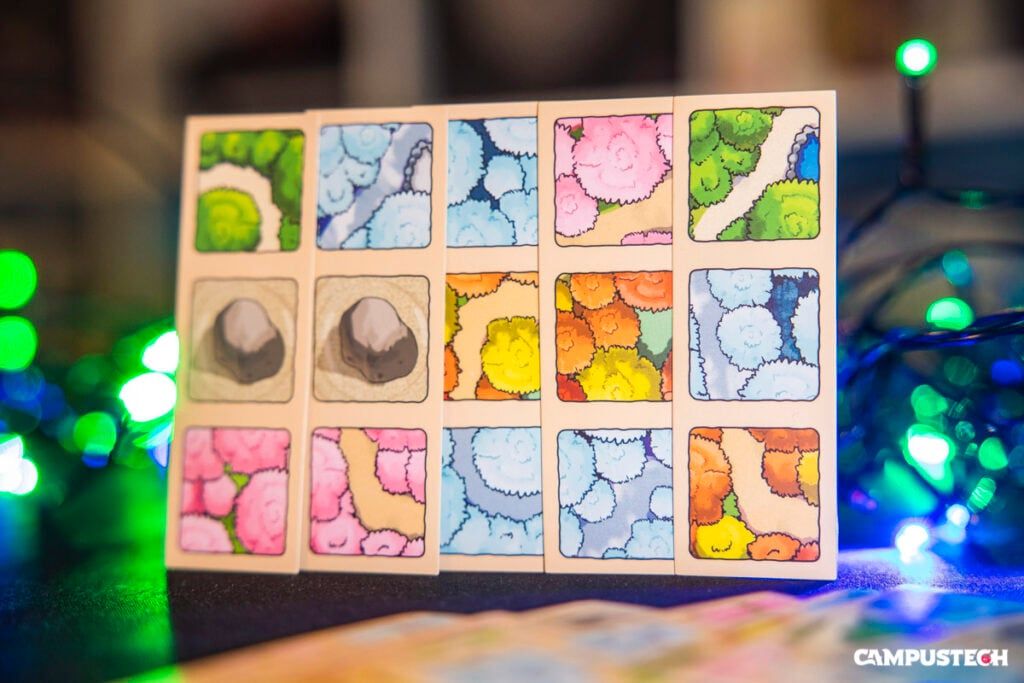

Common goals
But the first twist of the game hits hard: you cannot complete your objectives yourself. It is the other player who must complete them for you. Except he doesn’t see them. He will have to guess them, and therefore play for you, but also construct his own objectives so that you validate them.
For example, if I have a goal of 5 pink squares in a straight line, I will try to build a straight line of 4 pink tiles, and hope that he understands that he must put the 5th. For this, two small summary cards are there to remind you of the possible shapes.
Second twist or strong point of the mechanics: completing your hand. Quad you play a garden tile, you take one from the draw pile, a draw pile which offers a river of 3 tiles. Ok. But if you overlap at least one plot with a plot of the same color, you can complete your hand from the discard pile. And you will need it badly, otherwise you will see the pickaxe melt like Fuji in the sun, and see the end of the game come too soon.
The lantern
The last inventive mechanic in the game is called the lantern. On your turn, if you discard your entire hand, you can take the lantern and place it wherever you want in the game. This lantern then indicates to your partner a plot where you want him to play. These clues are essential, but they cost a lot of tiles. You must therefore use them sparingly, so as not to throw too many tiles into the discard pile.
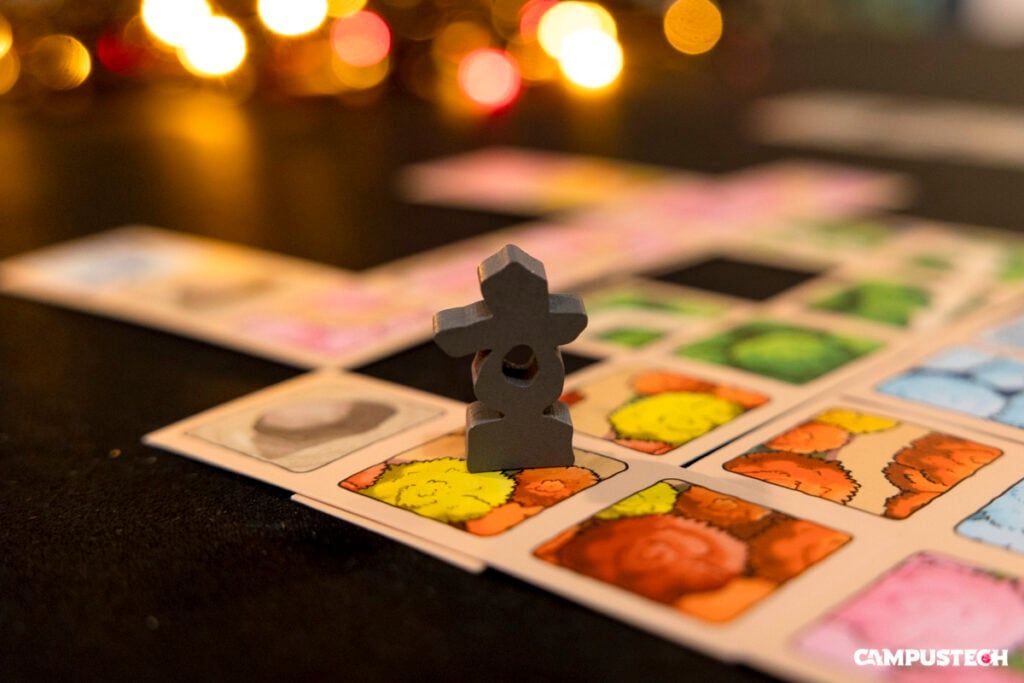

Nicolas le Niwashi
This gameplay seems very convincing to me, in its thematic application, made of superpositions, fine suggestions, and silence. I had a lot of fun playing, and the room for improvement is there…
Travel mode
A good margin for progress therefore, and replayability worked on thanks to a travel mode. In this mode, you will have constraints for your games, for example:
- do not leave any visible stones in the garden otherwise the game is lost
- do not use the discard pile
- your garden cannot exceed a 9×9 square
And the whole point of the game is in this travel mode, this advanced mode, which through its constraints will scratch into the corners of game design. Everything will have to be efficient, thoughtful, controlled, if you want to try it!
I especially like these games with some sort of Legacy mode. Because I play a lot, the range of board games is immense, and I like it when a game ends. So that he leaves me a story with a beginning and an end. I think I’ll do travel mode, then put the game away and never come back to it. And it will be perfect. A game does not necessarily benefit from being replayable over and over; there is also a dimension of intensity of the experience.
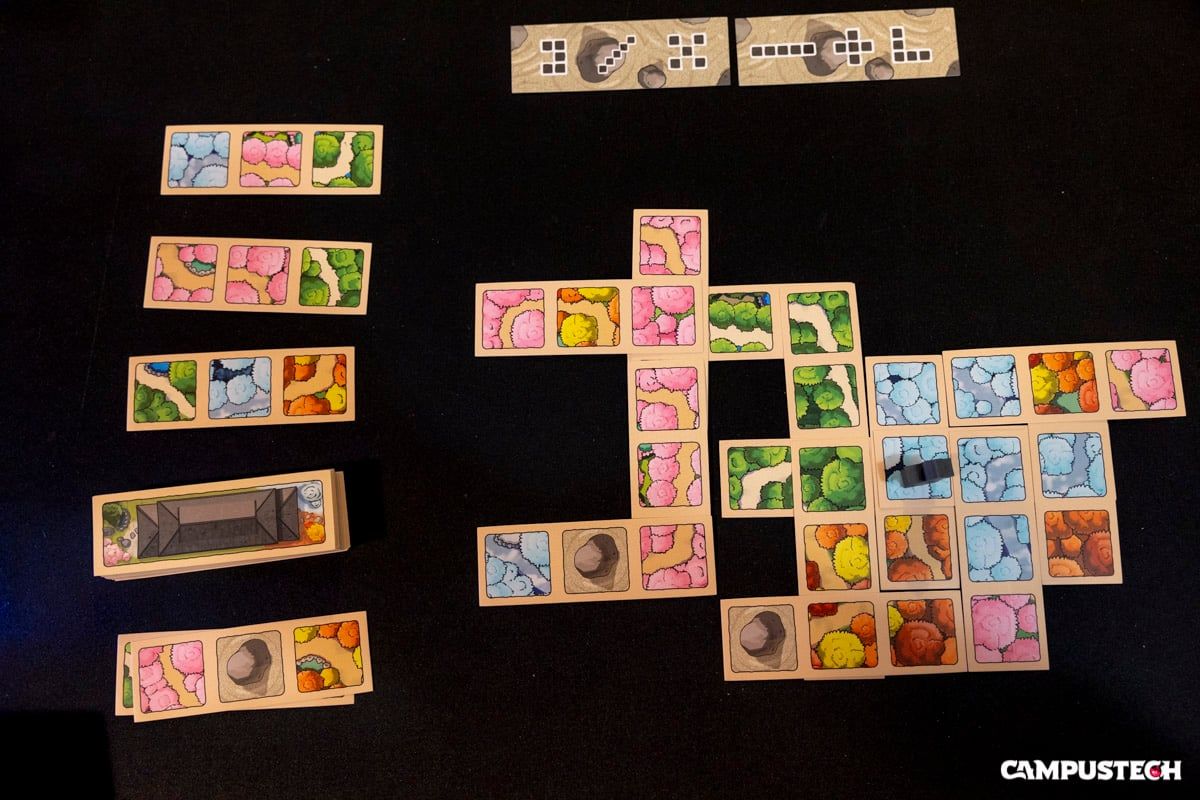

Devenez un Shokunin de la tuile
Niwashi seems very convincing to me in the end, it’s not a little game that we covered in three parts. Its gameplay finesse and editorial qualities make it a game that is both accessible and deep. Its depth and difficulty will tickle the advanced mechanisms of cooperation. Forcing communication when it is the key to your success is obviously a good idea, because you will have to develop another language with your partner.
A language that will be neither verbal nor gestural, but which will be based on trust and actions. A bit like the best co-op games do: I have Hana-bi, Aeon’s End or the recent Bomb Busters in mind. Each of its games offers you a learning path, and succeeding in decoding the language of the game, in deciphering its mechanisms, is perhaps more important than the game itself.
The important thing is not the destination, but the journey.


Niwashi
Zen zoom zoom on Niwashi with Le Décompte, your dedicated online store! Order now and become a quiet, yet competent gardener!
Buy on Le Décompte

